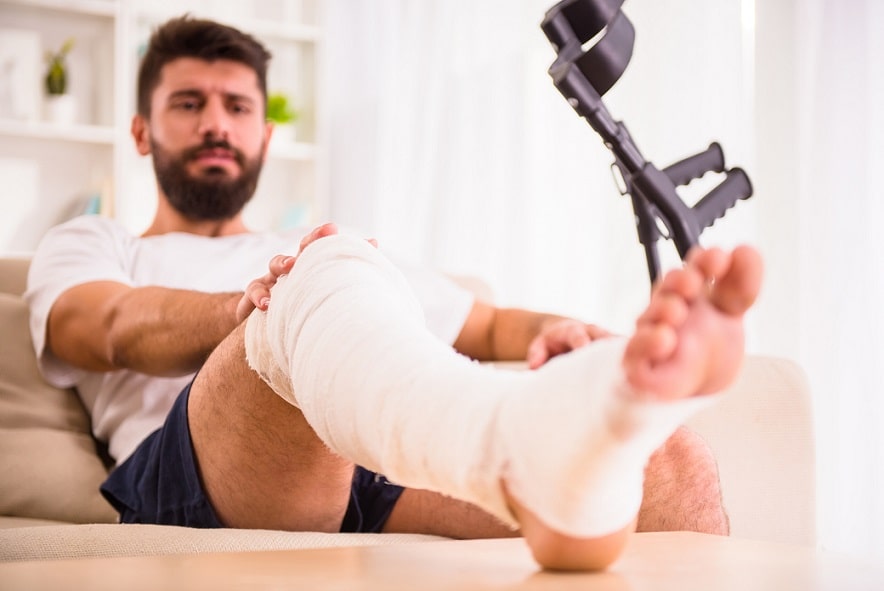 Claiming for an injury is often something that nobody knows they will do; after all, an accident is by definition something you did not mean or want to do. However, if you have been affected and make the decision to pursue a claim an important part of this is, of course, is making sure you have a solicitor that will get you the maximum amount of compensation you deserve.
Claiming for an injury is often something that nobody knows they will do; after all, an accident is by definition something you did not mean or want to do. However, if you have been affected and make the decision to pursue a claim an important part of this is, of course, is making sure you have a solicitor that will get you the maximum amount of compensation you deserve.
Now, claiming for compensation gets bad press sometimes – however an injury caused by an accident can have devastating consequences; for example, you suffer from loss of earnings or in serious cases you can no longer pursue the career you were heading for. Of course this is a main concern for many, however there are others such as medical and travel expenses that start to mount the longer your rehabilitation time is.
So how is compensation calculated? Basically, the compensation you are awarding depends upon how serious your injury is and how long this will affect your everyday life. For example; if your injury is going to affect you for the rest of your life, you are entitled to more compensation than someone who’s injury will be fully recovered in a couple of years (generally speaking).
Read More

 A recent report showed that during 2011, the General Medical Council (GMC) the organisation that manage, register, and licenses doctors practicing medicine in the UK, received a total of 8,781 complaints from patients
A recent report showed that during 2011, the General Medical Council (GMC) the organisation that manage, register, and licenses doctors practicing medicine in the UK, received a total of 8,781 complaints from patients Claiming for an injury is often something that nobody knows they will do; after all, an accident is by definition something you did not mean or want to do. However, if you have been affected and make the decision to pursue a claim an important part of this is, of course, is making sure you have a solicitor that will get you the maximum amount of
Claiming for an injury is often something that nobody knows they will do; after all, an accident is by definition something you did not mean or want to do. However, if you have been affected and make the decision to pursue a claim an important part of this is, of course, is making sure you have a solicitor that will get you the maximum amount of  It is a question that many people want to know and a question which we are asked time and time again. In terms of how long a claim will take from us taking it on to you receiving a settlement cheque, it is always difficult to say as it depends on a number of factors.
It is a question that many people want to know and a question which we are asked time and time again. In terms of how long a claim will take from us taking it on to you receiving a settlement cheque, it is always difficult to say as it depends on a number of factors.  One of the worst parts about being injured after an accident can be the need to rely on those around you to be able to perform the simplest of everyday activities. This can also not be the most convenient set-up for those helping as sacrifices may have to be made – such as time off work. So can this be included in your
One of the worst parts about being injured after an accident can be the need to rely on those around you to be able to perform the simplest of everyday activities. This can also not be the most convenient set-up for those helping as sacrifices may have to be made – such as time off work. So can this be included in your  Most of the time, if a vehicle has collided into the rear of your vehicle then they will be at fault. These types of accidents are the most common type and are known to us in the business as rear end shunts.
Most of the time, if a vehicle has collided into the rear of your vehicle then they will be at fault. These types of accidents are the most common type and are known to us in the business as rear end shunts. Well to start, what is whiplash? Whiplash is an injury that affects the neck, back, and shoulders (commonly). The actual
Well to start, what is whiplash? Whiplash is an injury that affects the neck, back, and shoulders (commonly). The actual  Turning 17, these days, just means one thing – you can now learn to drive! The independence, the freedom, and the confidence that can come with driving makes learning to drive one of the most beneficial things to do. As a driver myself, I often say to people who are looking to start learning that it will be the best thing they ever invest time and money in.
Turning 17, these days, just means one thing – you can now learn to drive! The independence, the freedom, and the confidence that can come with driving makes learning to drive one of the most beneficial things to do. As a driver myself, I often say to people who are looking to start learning that it will be the best thing they ever invest time and money in. As a pedestrian, a motor vehicle is a dangerous piece of machinery. The consequences are often devastating when a pedestrian and a vehicle come together in an accident.
As a pedestrian, a motor vehicle is a dangerous piece of machinery. The consequences are often devastating when a pedestrian and a vehicle come together in an accident.









